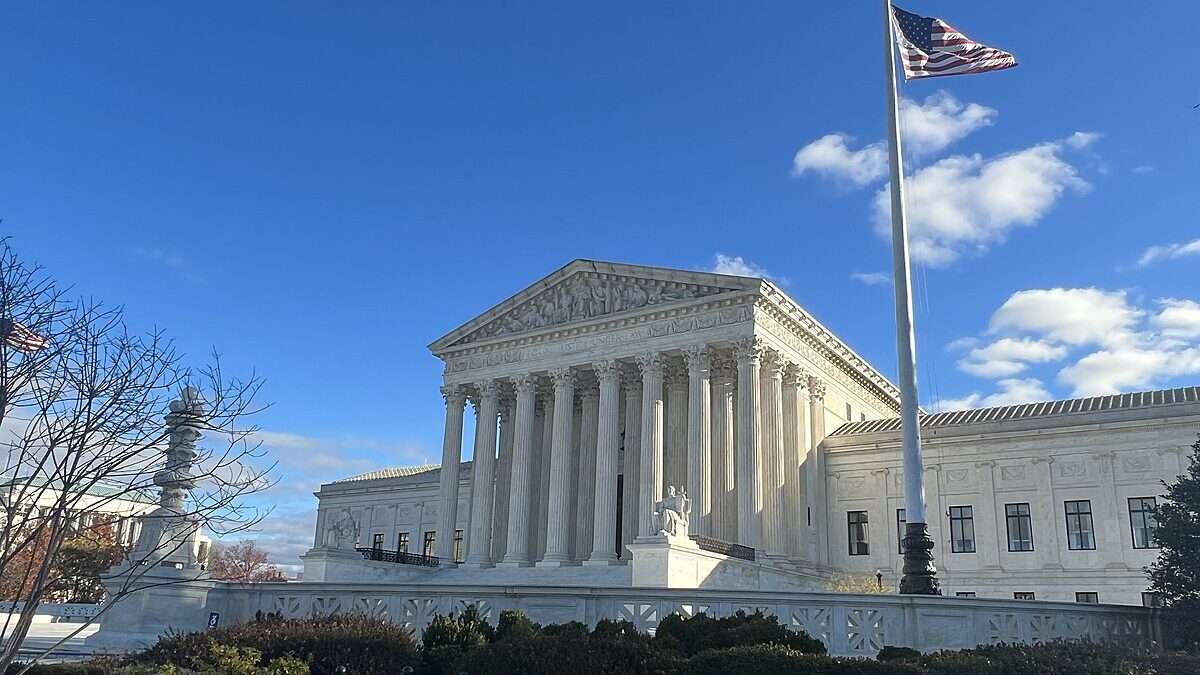Justice delayed is justice denied — or so the old saying goes. And although swimming in complex factual and legal issues, two cases that will be argued at the Supreme Court on Monday will put that adage to the test.
Start with Axon Enterprise v. Federal Trade Commission. The company makes police body cameras and digital evidence management systems. Shortly after acquiring an insolvent firm making similar products, the FTC claimed Axon’s acquisition raised antitrust concerns. The FTC filed suit, but not in a court of law. Instead, the FTC took the case to its own internal “court” with its own employee as the judge.
Turn to Securities and Exchange Commission v. Cochran. Michelle Cochran worked for an accounting firm in Texas; after she left that job, the SEC hauled Cochran into its in-house court on claims of paperwork irregularities. Not even the SEC claimed that anyone had been deceived or harmed because of these errors.
Both Axon and Cochran wanted fair proceedings — not in-house Star Chambers — so they filed lawsuits in federal court. After all, in their in-house adjudications, the agencies act as police, prosecutor, judge, and jury. Many traditional rules in federal courts that ensure fairness — such as fixed evidentiary standards — don’t apply in internal agency proceedings. And federal courts often defer to the agency’s findings if their rulings are appealed.
Not surprisingly, agencies enjoy a clear home-field advantage. Win rates in their own in-house courts are sky high: Cochran’s brief states that the SEC won more than 90 percent of the cases that it brought in-house between 2010 and 2015. Former FTC commissioners have noted that the FTC won nearly 100 percent of cases during their time there.
Judging Their Own Case with No Accountability
Thoughtful observers have long questioned the constitutionality — and the fairness — of these agency proceedings. Keep in mind: Commissioners both vote to file the complaint and determine all final questions of fact and law. Axon and Cochran, in other words, will not prove their cases to an impartial judge or jury; they must prove their case to the very people suing them. No wonder Professor Gary Lawson has written that the FTC’s combination of prosecutorial and judicial functions clashes with the deeply rooted principle that “no man can be a judge in his own case.”
Other constitutional problems linger still. Axon and Cochran raise arguments about the agencies’ structures, including special insulation from presidential control. Good-cause removal protections for the agency commissioners and administrative law judges ensure they will not be held democratically accountable. And Axon says the FTC’s arbitrary choice to bring a case internally (instead of in federal court) violates equal protection principles. Each argument alone could stop the agencies in their tracks.
Long Wait for a Day in Court
Yet the Supreme Court will address none of these important constitutional issues this term. Instead, the justices must grapple with a fundamental antecedent question: Who decides? The agencies claim that Axon and Cochran must endure years of litigation at the agency tribunal before ever getting a chance to go to an impartial court to make their constitutional arguments against the agency process. Only after losing in the in-house proceeding can Axon and Cochran ever get to make their cases to a neutral judge. And even then, lower court judges are bound by Supreme Court precedent that requires them to defer to most agency decisions.
Basic principles of fairness would allow plaintiffs to raise their constitutional claims in federal court immediately, without having to proceed through the agency. Why make private parties spend years — and in many cases, thousands (or even millions) of dollars on legal fees — fighting an agency in-house when the whole proceeding could later be declared illegal?
No doubt, there are instances when it makes sense for agencies to adjudicate claims in-house — if, for example, the dollar amount at stake is extremely low. Cases that are not truly adversarial, like those involving public benefits, such as payments to veterans or Social Security benefits, serve as other examples.
But whatever the merits of allowing simplified in-house resolution of such matters, the FTC and SEC cannot resolve claims about their own constitutionality. It is hard to imagine that agencies could handle such questions about themselves objectively or fairly. Recall that the FTC says Axon must argue to the FTC that the FTC is unconstitutional before it gets to ask a federal court. The result is preordained.
Let Federal Courts Decide on Constitutionality
A simpler route makes more sense: Let federal courts decide the constitutionality of the legal process. They are not only better equipped but constitutionally required to resolve such disputes. As Article III says, the “judicial Power of the United States” belongs to the federal courts, which “shall” hear “all Cases … arising under this Constitution.” And more than a century ago, Congress confirmed that district courts have jurisdiction to hear “all civil actions arising under the Constitution.”
Such clear-cut jurisdictional grants ensure that federal judges give life to the Constitution’s separation of powers. This constitutional design was no mere afterthought. On the contrary, constitutional structure protects individual liberty by pitting power against power. That includes the judicial branch checking executive branch overreach by ruling that agency action is illegal. But this careful scheme of checks and balances is frustrated when federal courts shut down such constitutional challenges.
An earlier Supreme Court decision — Thunder Basin v. Reich — created a limited exception to this general principle of judicial review. Thunder Basin held that courts lack jurisdiction when Congress’s intent to preclude judicial review is “fairly discernible” from statutory text.
But in Axon, no text — let alone clear text — in the FTC’s enabling act precludes judicial review. The FTC Act simply permits judicial review of cease-and-desist orders in the federal circuit courts. It says nothing about taking away jurisdiction from district courts before any cease-and-desist order has been issued. So, to agree with the FTC, the Supreme Court will have to squint — and squint hard — to find such congressional intent to strip federal district courts from hearing Axon’s constitutional suit.
The SEC’s authorizing statute is similar. It provides that the federal appellate courts have jurisdiction over appeals of the SEC’s final decisions. But it is odd to read that provision as impliedly taking away jurisdiction from the district courts over claims that the agency process is unconstitutional. In fact, the Supreme Court explained more than a decade ago that the act “does not expressly limit the jurisdiction that other statutes confer on district courts. Nor does it do so implicitly.” And yet that is precisely the issue in the case today. As Judge Eric Murphy of the Sixth Circuit wrote recently: “the question” in Axon and Cochran “does not look particularly difficult.”
Axon and Cochran’s specific travails may seem distant from everyday life. Few imagine facing lawsuits in agency courts with agency judges. But administrative proceedings today cover everything from horseracing disputes to product liability torts. And as the administrative state expands, so too does the number of individuals entangled in its tentacles. It is therefore all the more important that the Supreme Court affirm the Constitution’s separation of powers and hold that district courts have jurisdiction to hear structural constitutional challenges to administrative proceedings. Our individual liberties depend on it.









